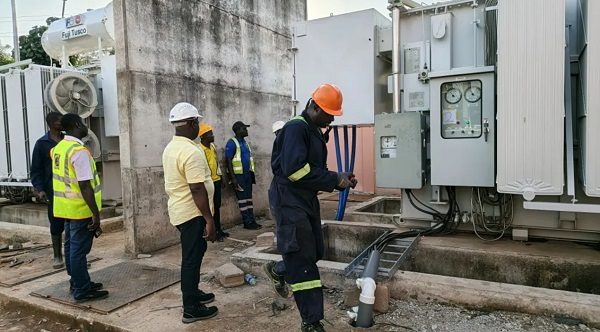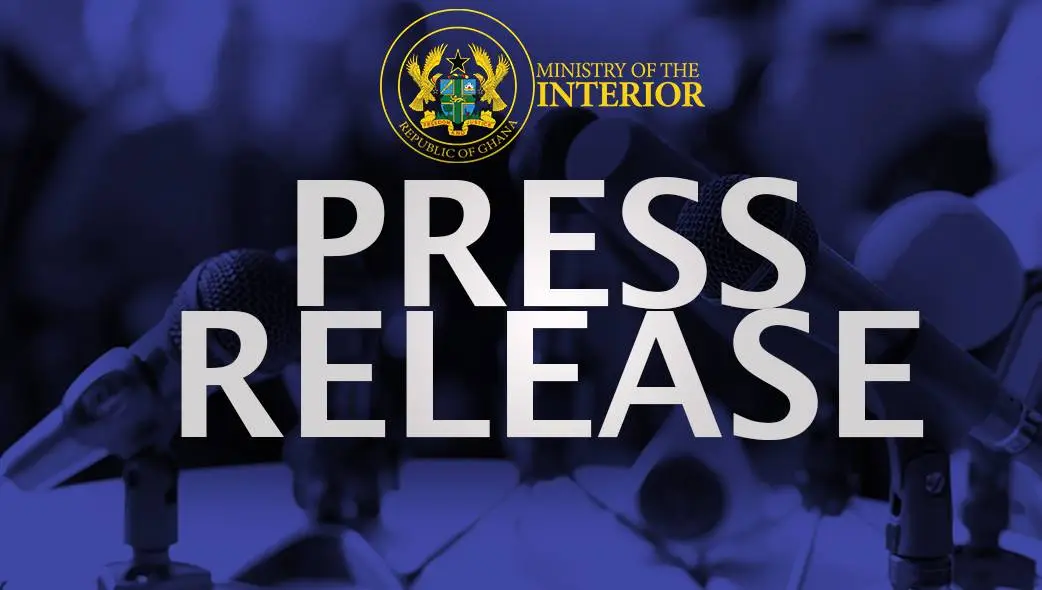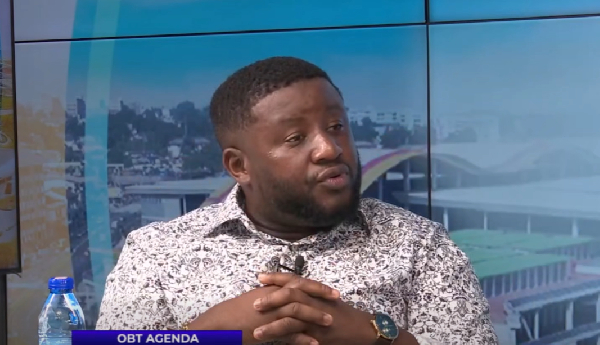Israel attacks Iran: Israel has launched unprecedented strikes on Iran, targeting its nuclear program and military leaders in an attack that Prime Minister Benjamin Netanyahu said will last many days. Israel’s military said it used 200 fighter jets, and in retaliation, Iran launched over 100 drones toward Israeli territory.
Trump warns Iran:President Donald Trump told CNN that the US, of course, supports Israel in its actions. Trump warned Iran earlier today to agree to a nuclear deal before there is nothing left, suggesting Israel’s next attacks on the country could be even more brutal.
Military leaders killed:Gen. Hossein Salami, the commander-in-chief of Iran’s Revolutionary Guard and one of the country’s most powerful figures, was killed in the attack. Maj. Gen. Mohammad Bagheri, Iran’s highest-ranking military officer, was also killed. Iran’s foreign minister warned that Israel will deeply regret its attack, urging the UN Security Council to hold an urgent meeting.
Nuclear targets:Netanyahu said Operation Rising Lion struck Iran’s main enrichment facility in Natanz, nuclear scientists, and what he called the heart of Iran’s ballistic missiles program.
Air defences across Iran were activated as fresh air strikes targeted Tehran Friday evening local time, Iranian state media reported.
Press TV reported that missiles were intercepted south of Tehran, while the Islamic Republic of Iran Broadcasting (IRIB) reported that new strikes were targeting western Tehran. Karaj, a city near Tehran, was also targeted, IRIB wrote.
Israel is committed to ensuring there is no nuclear weapons program in Iran, the ambassador says
Israel is committed to guaranteeing that there is no nuclear weapons program left in Iran, the Israeli ambassador to the United States, Yechiel Leiter, told CNN. Those who are going to challenge our will to live in peace are going to have to be challenged by us, and that’s what we’re in the process of doing now, Leiter told CNN’s Wolf Blitzer. Iran will not have a nuclear path to a nuclear bomb, he said.
Israeli military deployed reservists across the country before striking Iran, IDF says
Israel deployed reservist troops throughout the country before attacking Iran overnight, the Israel Defense Forces (IDF) said in a statement on Friday.
Iraq urges Iran to continue talks with the US after Israeli attack
Iraq’s foreign minister and deputy prime minister, Fuad Hussein, urged Iran to continue talks with the United States after Israel attacked Iran, according to a statement released by Iraq’s foreign ministry. Minister Hussein expressed Iraq’s strong condemnation of the military aggression targeting the Islamic Republic of Iran, affirming Iraq’s solidarity with the Iranian government and people in facing this dangerous escalation, the statement said.
Nuclear talks: Iran and the US have recently held several rounds of nuclear talks, most recently meeting in Rome in late May. A sixth round of nuclear deal talks was scheduled to take place in Oman on Sunday.
Iraq has submitted an official complaint to the United Nations Security Council regarding the strikes, it continued, adding that Iran reserves the right to respond and defend its sovereignty in proportion to the scale of the threat. This January 24 satellite image provided by Maxar Technologies shows the Natanz nuclear facility in Iran. Maxar Technologies/AP. Radiation levels at Iran’s main enrichment facility in Natanz remain unchanged, according to the chief of the International Atomic Energy Agency (IAEA). Radiation levels outside the Natanz facility remained unchanged. The type of radioactive contamination present inside the facility, mainly alpha particles, can be managed with appropriate protective measures, IAEA Director General Rafael Grossi said in a statement on X. The United Nations nuclear watchdog confirmed that Natanz had been hit amid Israel’s attack on Iran, but said earlier it had not observed an increase in radiation levels in the area.
Iran summons Swiss ambassador to warn US over Israel’s attack
Iran summoned the Swiss ambassador in Tehran to deliver a warning to the United States, accusing Washington of complicity in Israel’s attack. Iran also warned against any US support for Israel during Tehran’s response, including by preventing Iran from exercising its right to legitimate defence, the statement said.
Some context: The US and Iran do not have diplomatic relations, and Switzerland serves as the official representative of US interests in the country.
Israeli foreign minister says Iran’s “war against Israel” began with the October 7 attacks
Israel’s foreign minister said that Iran’s war against Israel began with the Hamas-led October 7 attacks in 2023. Already on October 8, 2023, the day after the terrible massacre, I wrote, “Yesterday was the first day of Iran’s war against Israel,” Israeli Foreign Minister Gideon Saar wrote on Facebook. He said the attack on Iran was necessary to remove from Israel the threat of annihilation.
For context: Iran, which has supported Hamas, has denied that it had any role in the October 7 attacks. Jake Sullivan, the US national security adviser at the time, said days after the attack that the Biden administration didn’t have direct evidence linking Tehran to the planning and execution of the assault. And multiple intelligence, military and congressional officials with access to classified intelligence told CNN that no direct evidence was found indicating Iran was directly involved. Saar added that he has spoken to a number of his international counterparts, including foreign ministers from India, Germany, France, Italy, Hungary, Paraguay, Panama, and Cyprus, as well as the European Union.
Trump spoke with Netanyahu several times Thursday, including before Israeli strikes, source says
President Donald Trump spoke with Israeli Prime Minister Benjamin Netanyahu several times on Thursday, including before Israel launched unprecedented strikes on Iran, a source familiar with the discussions told CNN. The source would not divulge the substance of the calls but reiterated that Trump believes the attack was a result of Iran failing to strike an agreement on a new nuclear deal before his 60-day deadline expired.
Trump is set to speak to Netanyahu later today, according to a US and an Israeli official.
White House officials continue to argue that the president is committed to salvaging the ongoing nuclear talks with Iran. The source said special envoy Steve Witkoff is ready to meet Iranian officials when they are whether it be in Oman on Sunday as previously scheduled or at some date thereafter.
Link Copied!
“The Rubicon has been crossed”: Iran likely to break paralysis with massive retaliation, experts say
From CNNâs Nadeen Ebrahim  Iran’s paralysis following Israel’s massive strike against its nuclear facilities is unlikely to last, Iran experts say, warning that Tehran will imminently retaliate as a Rubicon has been crossed. Iran’s leadership is likely reeling, but that paralysis is unlikely to last, Sina Toossi, senior fellow at the Centre for International Policy, said in a statement to CNN. Trita Parsi, executive vice president of the Quincy Institute in Washington, DC, told CNN that it would be difficult for Iran not to retaliate, adding that Iran’s response is likely to be bigger than its attack in October, which saw Iranian missiles attack Israeli military sites. It is unclear how long it will take Iran to recover from Israel’s blows, however, Parsi said. Toossi added that Trump has warned Israel not to strike. Whether that was a strategic ruse or genuine restraint is now irrelevant. “The Rubicon has been crossed,” he said.
Iran’s paralysis following Israel’s massive strike against its nuclear facilities is unlikely to last, Iran experts say, warning that Tehran will imminently retaliate as a Rubicon has been crossed. Iran’s leadership is likely reeling, but that paralysis is unlikely to last, Sina Toossi, senior fellow at the Centre for International Policy, said in a statement to CNN. Trita Parsi, executive vice president of the Quincy Institute in Washington, DC, told CNN that it would be difficult for Iran not to retaliate, adding that Iran’s response is likely to be bigger than its attack in October, which saw Iranian missiles attack Israeli military sites. It is unclear how long it will take Iran to recover from Israel’s blows, however, Parsi said. Toossi added that Trump has warned Israel not to strike. Whether that was a strategic ruse or genuine restraint is now irrelevant. “The Rubicon has been crossed,” he said.
US State Department formed task force ahead of Israeli strikes on Iran, officials say
The State Department stood up a task force to track developments and coordinate efforts in the event of any US evacuations from the Middle East on Thursday, before Israel carried out strikes on Iran’s nuclear sites, two State Department officials said.
Why this matters: The task force serves as a convening mechanism for the department’s wide intake of information and is standard practice when there are heightened security concerns. As of Friday, multiple embassies in the region were actively reviewing their posture, but officials said there had been no decision to further draw down personnel. One senior US diplomat said that would only come if there was the expectation that US facilities and personnel in the country were going to be targeted in Iran’s retaliation.
Source: https://edition.cnn.com









